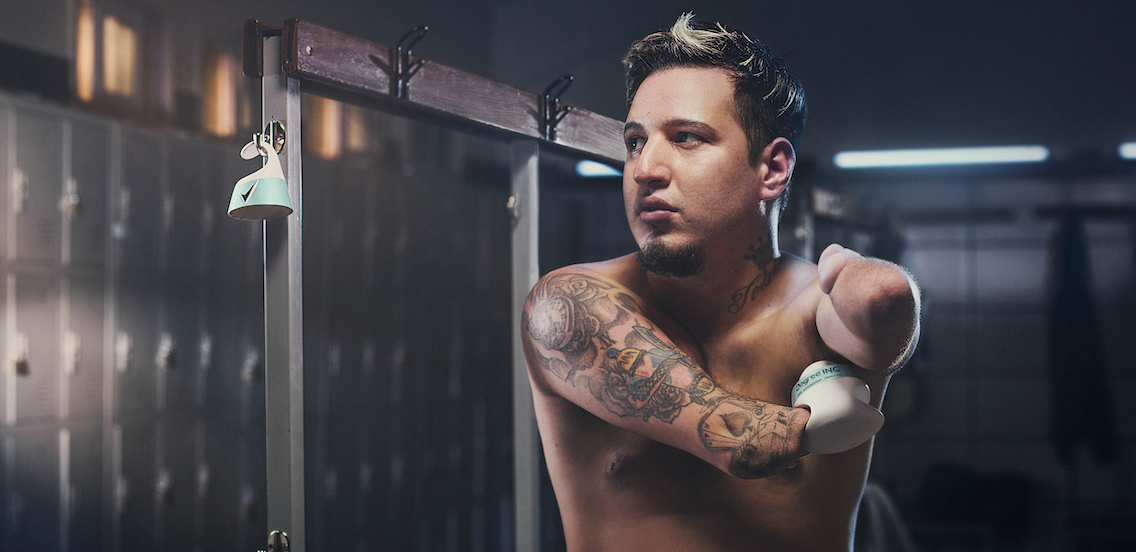Degree deodorant is stepping up to the plate to expand the conversation around inclusivity and diversity to include people with disabilities.
On September 19, Degree launched a new campaign starting with ad placement in The New York Times print edition. Written as an open letter to the fitness industry, the ad takes aim at the lack of representation for people with disabilities. The campaign, using the hashtag #TrainersforHire, aims to encourage fitness companies like SoulCycle and Peleton to visit TrainersforHire.com. The landing page developed by Degree helps fitness companies find qualified disabled and adaptive job candidates. They can also access a free ally toolkit for information on how to make their spaces more inclusive and accessible for the disabled community.
The campaign comes on the heels of Degree’s “Watch Me Move” short film featuring stories of people with disabilities who have faced judgment for not meeting society’s idealized version of a “mover.” They included surfer and shark-attack survivor Bethany Hamilton. In addition, Degree introduced a deodorant prototype in April called Degree Inclusive that makes the application process more accessible to people with visual impairment and upper limb motor disabilities. A beta test of the product in the U.K. recently concluded, while another with 200 people in the U.S. is still underway.
Glossy spoke with Kathryn Swallow, Unilever’s global Degree brand vp, about what the campaign entails, how the conversation around diversity has expanded and how brands can affect actual change.
How did Degree get involved in the representation of people with disabilities?
It all started with our purpose. We defined the purpose of the brand a year ago: to inspire the confidence in everyone to move more. I wrote the word “everyone” purposefully, because I do think that, as the biggest brand in the world in this category, it’s our job to be truly representative. I honestly didn’t think the brand was. When we look at the cohorts of who we want to focus on and where we can really drive change, disability was at the top. The industry is not thinking about people with disabilities, whether that is in product design or in communication. We think we can drive a lot of change, because nobody is doing it. We still have initiatives on gender, race and ethnicity, but we are leaning very heavily into the space of disability.
What has Degree learned so far from its Inclusive beta deodorant?
From the U.K. data, it’s [been well received] — mostly because someone’s finally designed a project for people with upper limb mobility issues and visual impairment. But [we found] there were product flaws in the design, which we suspected and why we did a beta. It dispenses too much [product] formula. The plan is to go back into the design process, then iterate the packaging design and build a new packaging mold by the first quarter of next year, with another beta test to follow. The intention is to start selling [the product] by the second half of next year.
What are the distribution and merchandising opportunities for Degree Inclusive?
One of the biggest challenges we’re seeing in our data and conversations — and a reason I think Degree Inclusive should become a platform — is the path to purchase. Whether online or offline, stores are not designed [for people with disabilities]. Even online, designing websites to be accessible is difficult. We will start with one retailer, because of the scale we will have in our production capability. We can also work together on things like the path to purchase, and really learn and improve the whole shopping experience.
What do you mean when you say Degree Inclusive could be a platform?
I see a [sort of] Degree Inclusive sub-brand that exists to drive change. Our current campaign could have been branded “Degree Inclusive.” We need to act to drive change, and those acts will be as much about what we’re doing, as it is about [putting new] products on the shelf.
How is Degree directing the fitness industry to TrainersForHire.com?
I’ve contacted [executives at] 50 U.S.-based movement companies, whether they are heads of human resources or heads of companies, to say, “We can’t change it on our own. Why not come with us?” We haven’t had anyone get involved yet, but it is early days. We only went to them a couple of days ago. Then, of course, the media is a rallying cry, where we really want people to sit up and listen. All of our calls-to-action lead to TrainersForHire.com. We also have partners like Bethany Hamilton and [snowboarder] Amy Purdy, but also NGOs like Lakeshore Foundation. It’s a U.S. focus right now, but in the first quarter of next year, it will [evolve into] an activation by the brand in many countries.




